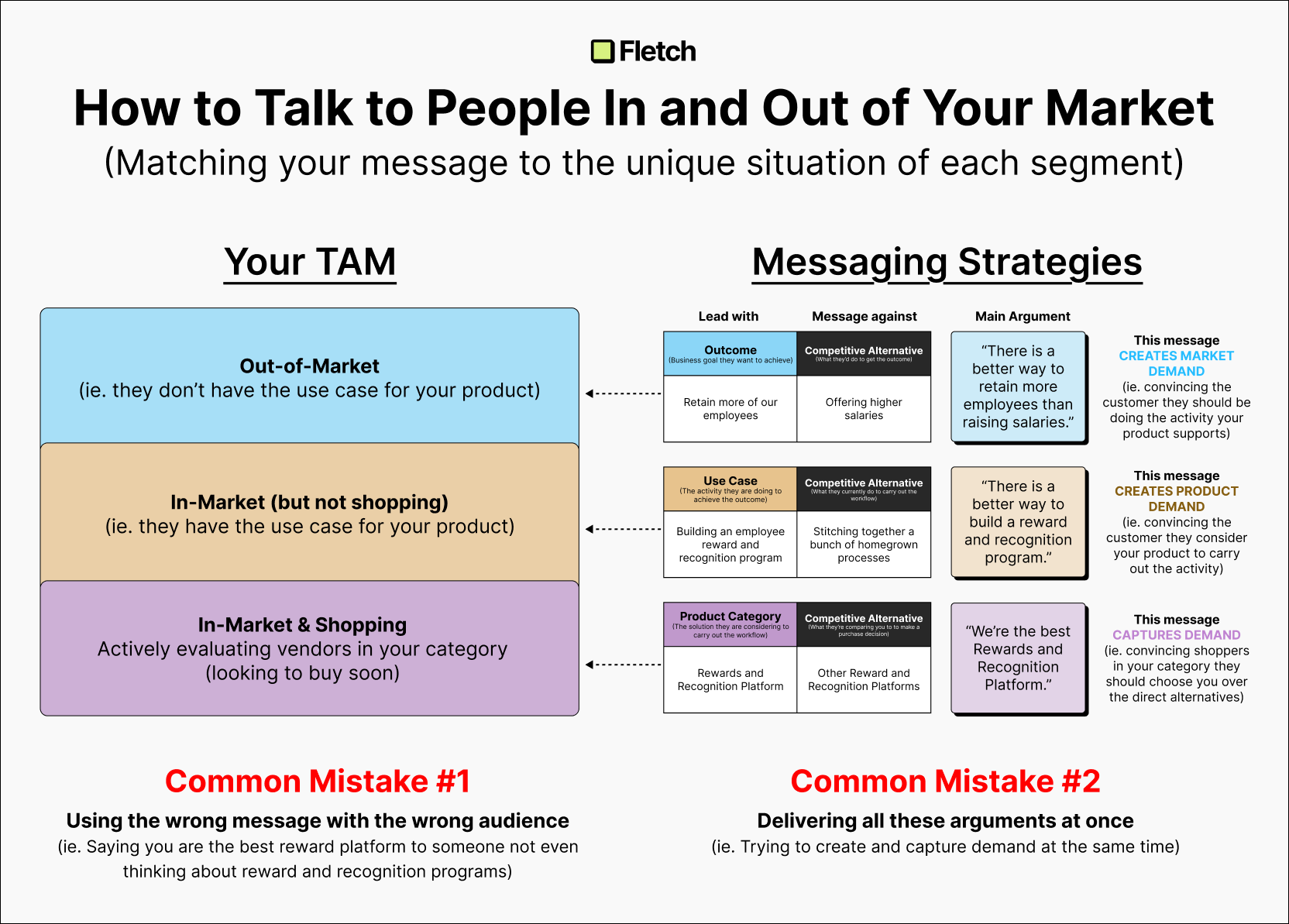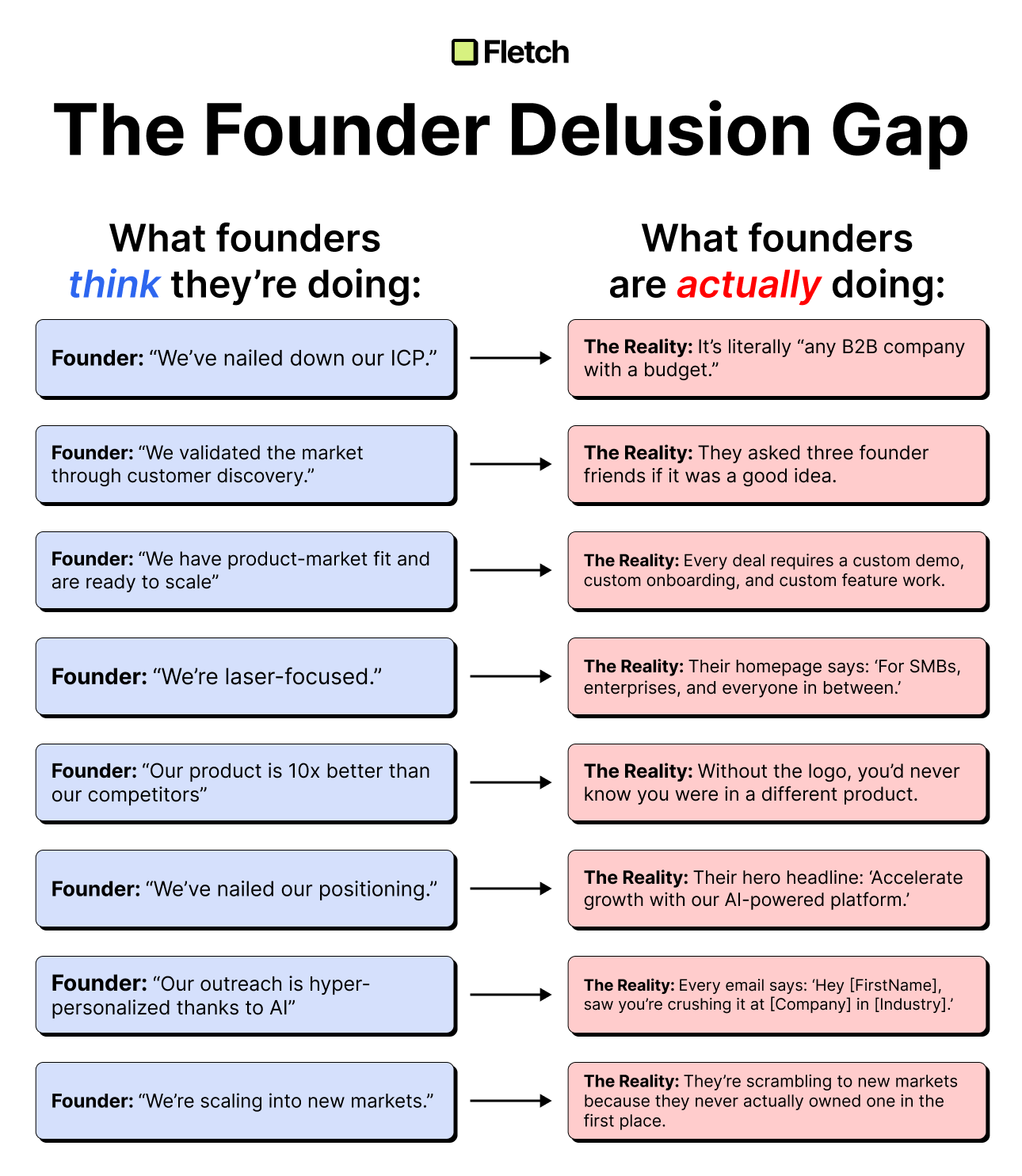Use Problem-Focused Content to Generate Demand


The best way to generate demand as a PLG startup is to focus your content on the problems faced by individual users.
Rule of thumb: the more specific, the better.
Here's an example with Figma.
When Figma entered the scene, they were providing a fundamentally new experience for designers.
To "create demand" for the new way, they needed to point out of the deficiencies of the current way of doing design.
Current way:
- Design tools aren't built for modern teams.
- Design tools are single-player
- Design tools are bulky
These create the opening for the game-changing capabilities of Figma:
New way:
- Get a design tool built for modern design teams.
- You can collaborate in the same files in 100% real time
- You can edit in a web-browser with files stored in the cloud
But the problem themes (i.e. "design tools are single player") aren't enough to stop the scroll.
This is where providing real-life context and situations every designer could relate becomes so powerful.
For example:
- Stakeholders keep sending you feedback on your designs in emails, and then you have to go and manually cross-reference them when you're making the changes in Sketch.
- "Wait, I have that exact problem!"
(this is what stops the scroll)
Here's the steps you can follow to achieve this for YOUR startup:
- start with a high level problem solved by your app
- break it into sub-problems that are experienced by teams
- use these sub-problems as content "themes"
- find specific examples of these themes experienced by users
- share these themes in your distribution channels
(i.e. organic content, ads, outbound email, etc.)

Ben Wilentz
Founder, Stealth Startup





